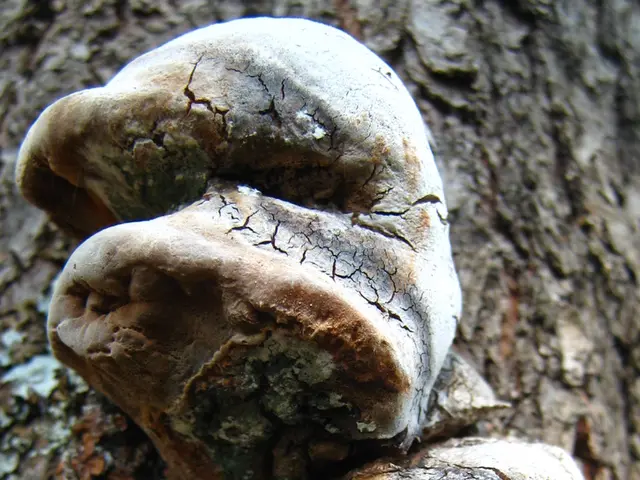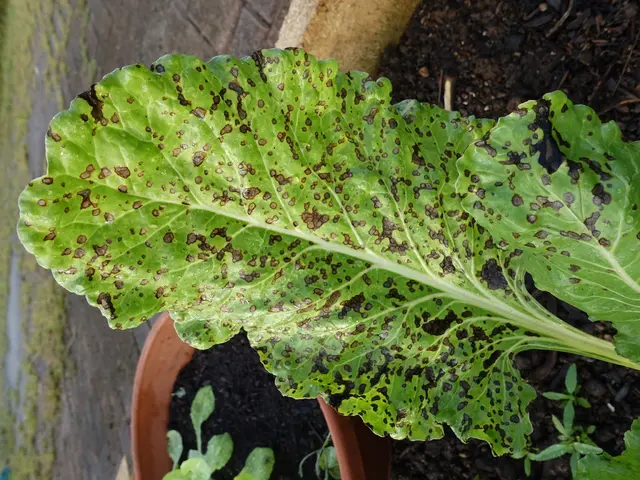Dietary recommendations for managing an overactive bladder: Foods to consume and those to limit
An overactive bladder (OAB) is a common condition that affects many adults, characterised by involuntary bladder contractions leading to frequent and sudden urges to urinate. This article explores various factors contributing to OAB, potential management techniques, and lifestyle changes that can help manage symptoms.
Possible underlying reasons for an OAB include neurological disorders, diabetes, urinary tract infections, diuretic medications, older age and cognitive decline, excessive intake of caffeine or alcohol. Certain lifestyle factors, such as being overweight or obese, can also increase the risk of developing OAB.
One of the key factors exacerbating OAB symptoms is fluid intake. While it's essential not to get dehydrated, as this will result in more concentrated urine, which may further irritate the bladder lining, it's also important not to exceed the recommended amounts. Drinking 6 to 8 glasses of fluid each day is recommended, but excessive consumption may lead to more time in the bathroom.
Certain foods and beverages can aggravate symptoms of an overactive bladder. Caffeinated products like coffee, tea, energy drinks, and chocolate can increase urine production and irritate the bladder. Spicy foods, acidic foods such as citrus fruits and tomato-based products, alcoholic beverages, carbonated drinks, artificially sweetened beverages, processed foods, and in some cases, even citrus fruits have been associated with worsening OAB symptoms.
In cases where surgery or medications could be risky, using absorbent pads or undergarments may be a management technique to absorb urine. For adults with OAB who also suffer from constipation, it's recommended to seek dietary advice on how to encourage regular bowel movements, as high fiber foods have shown an association between constipation and an OAB.
Acupuncture may be effective in helping with the symptoms of an OAB, either as an alternative approach or alongside medication. Bladder training, which aims to make the bladder muscles stronger so they can hold urine for longer periods of time, is another management technique.
Doctors frequently prescribe drugs called antimuscarinics for an OAB, which work on the muscles surrounding the bladder to help control the random contractions that cause frequent urination. However, these drugs have some unfavorable side effects such as constipation and dry mouth.
In rare cases, people may need surgery to correct bladder abnormalities and reduce the symptoms of OAB. Being overweight or obese has been identified as a risk factor for urinary incontinence, and adults are encouraged to lose weight and maintain weight loss by exercising regularly, eating more fruits and vegetables, choosing wholegrain carbohydrates, and including lean proteins in their diet.
Smoking can irritate the bladder and is a risk factor for bladder cancer. Limiting or avoiding caffeinated products, spicy foods, acidic foods, alcoholic beverages, carbonated drinks, artificially sweetened beverages, processed foods, and citrus fruits can help manage symptoms of an overactive bladder. It's also important to maintain proper hydration with bladder-friendly beverages like water.
In conclusion, an overactive bladder can be managed through a combination of lifestyle changes, medications, and in some cases, surgery. It's essential to consult a healthcare professional for personalised advice and treatment options.
- Neurological disorders, diabetes, urinary tract infections, diuretic medications, older age and cognitive decline, excessive caffeine or alcohol can be contributing factors to an overactive bladder (OAB).
- Being overweight or obese increases the risk of developing OAB.
- Fluid intake should be managed carefully to avoid exacerbating OAB symptoms; 6 to 8 glasses of fluid each day is recommended.
- Certain foods and beverages, such as caffeinated products, spicy foods, acidic foods, alcoholic beverages, carbonated drinks, artificially sweetened beverages, processed foods, and citrus fruits, can worsen OAB symptoms.
- Incontinence due to OAB can be managed with absorbent pads or undergarments in cases where surgery or medications may be risky.
- For adults with OAB and constipation, eating a diet high in fiber can encourage regular bowel movements.
- Acupuncture may offer relief from OAB symptoms as an alternative approach or in conjunction with medication.
- Bladder training can help strengthen the bladder muscles and improve the ability to hold urine for longer periods.
- Antimuscarinics, medications prescribed for OAB, work on the muscles surrounding the bladder to control random contractions.
- Constipation and dry mouth are potential side effects of antimuscarinics.
- Surgery may be necessary in rare cases to correct bladder abnormalities and alleviate OAB symptoms.
- Weight management is important for reducing the risk of urinary incontinence; weight loss can be achieved through regular exercise, a diet rich in fruits, vegetables, wholegrain carbohydrates, and lean proteins.
- Smoking ir parches the bladder and may increase the risk of bladder cancer.
- For those experiencing OAB symptoms, avoiding or limiting caffeinated products, spicy foods, acidic foods, alcoholic beverages, carbonated drinks, artificially sweetened beverages, processed foods, and citrus fruits can be beneficial.
- Adequate hydration with bladder-friendly beverages like water is essential for maintaining overall health and managing OAB symptoms.
- Lifestyle changes and dietary modifications can play a crucial role in managing OAB symptoms.
- People who have OAB and constipation should consider consulting a medical professional for dietary advice.
- The potential impact of aq (acupuncture) and therapies-and-treatments on OAB symptoms warrants further study.
- Nutrition, especially food high in fiber, is essential for promoting digestive health and managing OAB.
- In addition to weight management, fitness-and-exercise and healthy-cooking practices play a significant role in maintaining cardiovascular health.
- Cancers, including cancer, are among the medical-conditions that require constant monitoring and timely treatment.
- CBD, as a component of health-and-wellness products, has been explored for its potential benefits in managing various chronic diseases, such as neurological disorders.
- Eye-health and hearing are crucial aspects of personal health that require attention and maintenance.
- Skin-care and immune-system health are interconnected; taking care of skin can be an important aspect of autoimmune-disorders management.
- Mental-health is an integral part of overall health; mental illnesses require proper attention and care.
- Home-improvement ideas can contribute to managing obesity, promoting sustainable living, and creating a healthier lifestyle.
- Home-and-garden projects can increase physical activity levels, support outdoor-living and cooking, and thus help weight management.
- Gardening is both a hobby and a form of exercise, providing multiple benefits for physical and mental health.
- Budgeting skills can help maintain personal-finance has a positive impact on mental and physical health by reducing stress and promoting financial stability.
- Financial stress can impact mental-health, making it essential to practice responsible spending, saving, and debt-management strategies.
- Cooking is an enjoyable way to embrace healthy eating habits, explore global-cuisines, and adopt a lifestyle focused on health and well-being.
- Purchasing energy-efficient cars, focusing on cars with good fuel efficiency, and regular car-maintenance can contribute to wealth management and sustainable living.








